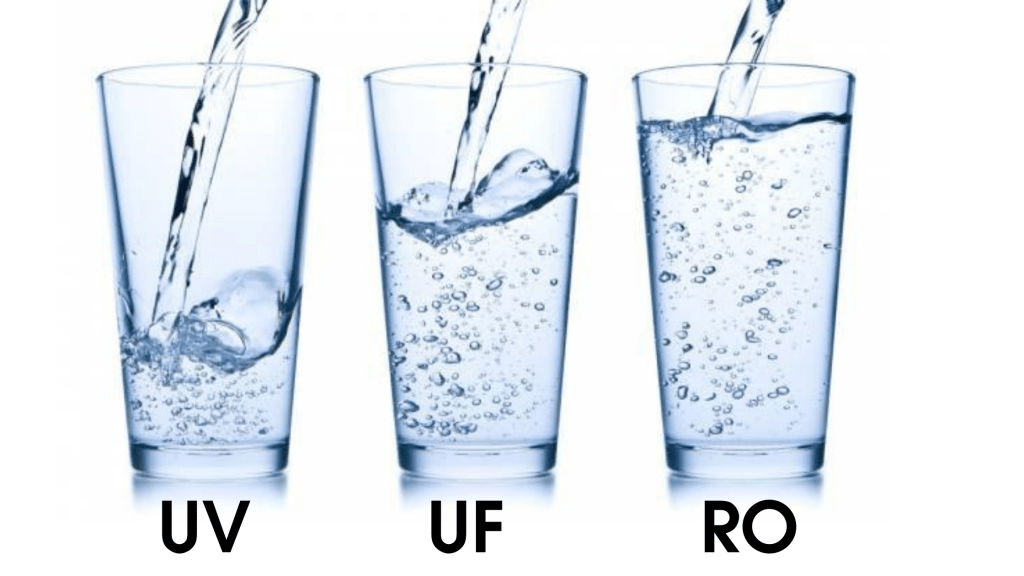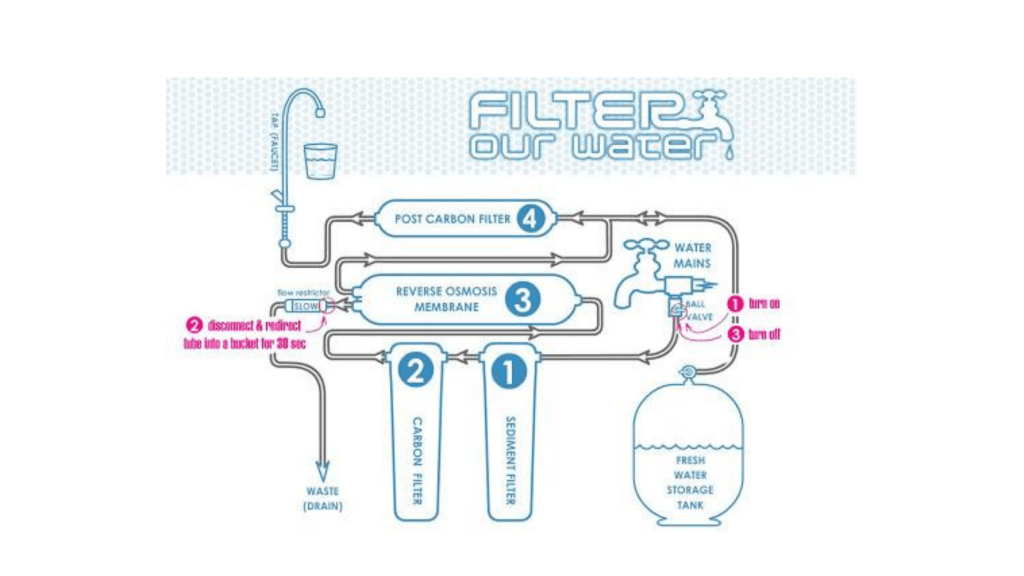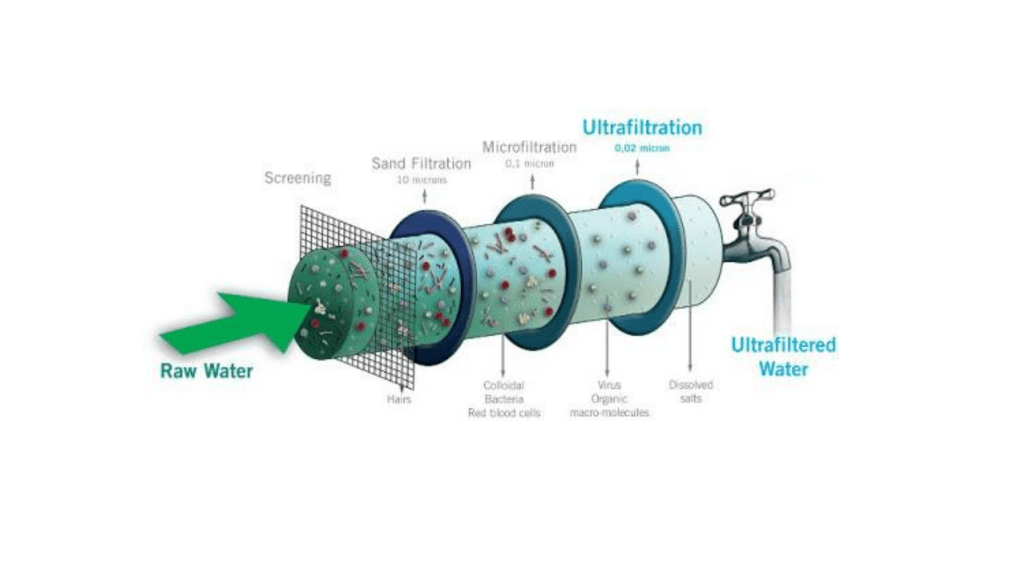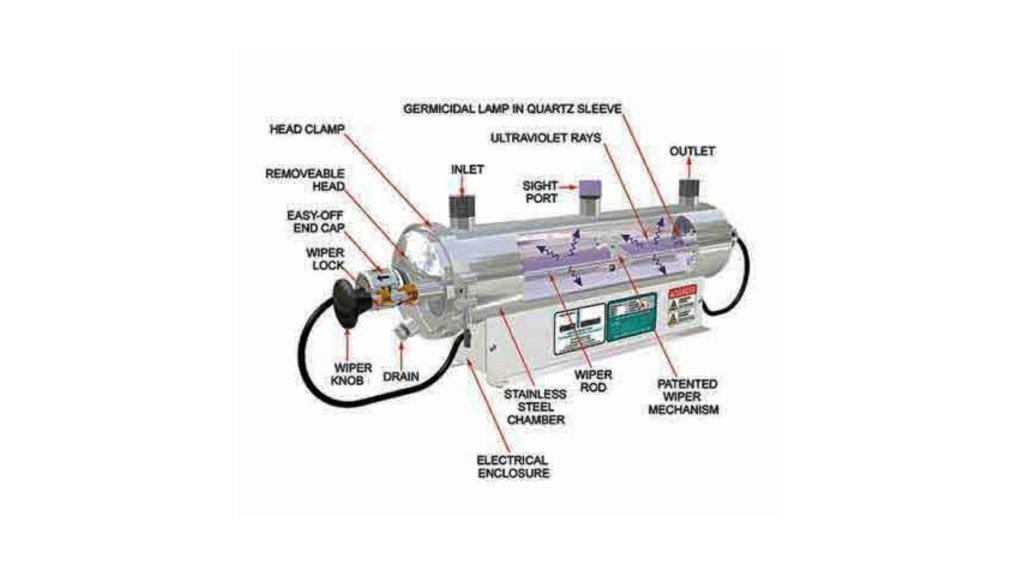
This is one of the best discussions that we’ll have as it is related to health benefits.
Till now, you understand that there are various types of water purifiers. In this article, we will take it further to find the exact difference between RO vs UV vs UF.
Since you are looking to choose the best water purifier for your home, I’ll make sure your journey gets super knowledgeable and exciting.
You will also get to know which suits best for your home, complete advantages, disadvantages, how they work & most importantly the benefits.
Generally, the technologies are named as Reverse Osmosis Water Purifier [ RO ], Ultraviolet Rays Purifier [ UV ] & Ultra- Filtration [ UF ]
Don’t worry that sounds a bit technical, in fact; it is: ) however I’ll break everything down in an easy to understand language. In other words, slightly non-technical.
Difference between RO UV UF Technology
Do you know that only 1% of water is available in the world for us as human beings & animals?
Yes, that’s absolutely correct. Nowadays, there is a lot of air pollution as well as water. We are the only ones who are responsible for this.
The water available in lakes & rivers is also not pure these days. Even rainwater is not absolute.
Naturally, in most of the cities, the government tries their best to deliver complete pure water. However, they fail to do so.
The reason being, internal defects and lack of maintenance. The boring water supplied contains bacteria & viruses.
These dissolved elements are very harmful to health; in fact, the primary reason for the majority of the diseases is because of drinking impure water.
I would say a water purifier is a must needed appliance in every house. So, now how do you decide which one is the best fit?
Below you can see the further breakdown of all the technologies, and you will be able to make the right choice.
1) RO (Reverse Osmosis) Purifier Description

So, the RO version uses its reverse osmosis technology to purify the water. The best part is that only RO technology is capable enough to remove the dissolved contaminants from the water.
This technology is pretty advanced as they use permeable membranes. The process works in a way that the water passes through these membranes.
Both small-sized dissolved, undissolved particles and other impurities get separated and remain on the other side of the panel.
After the entire purification process, you will get entirely pure water.
The exact process of how an RO Water Purifier works?
As we discussed, the RO technologies use permeable membranes. So, these membranes contain tiny pores which are very little in size.
So, during the time of water purification, the pores only let the water molecules pass through. It eliminates the other contaminants which are detected by the size.
The intelligence automatically detects if there is something else with the water, and it doesn’t let it go through.
As the name suggests, reverse osmosis works in a way in which a fluid moves from a high-density location to a low-density location which it is eliminated through a membrane.
At the same time, it’s entirely different from osmosis. In this case, the fluid moves from a low-density location to a high-density area. It is thereby providing you with the most purified water.
Now, the membrane also removes healthy molecules from the water. Unfortunately, there’s a compromise. However, some of the latest models come with advanced features which automatically restores the healthy minerals.
RO is the most trustworthy purification process; it removes and eliminates all sorts of impurities & contaminants, regardless of their sizes.
Remember, if these small contaminants are ignored. It really doesn’t affect you immediately, but for the long run, these are very harmful.
Lastly, if the TDL level in your water is slightly higher, then you definitely require an RO water purifier. Now, let’s discuss the pros & cons of RO technology.
Benefits of an RO Water Purifier
- RO is the most trustworthy purification process
- It’s the only technology which can remove dead bodies of impurities.
- Less Maintenance Required
- Comes with latest technologies to restore healthy minerals
- Storage Tanks stores pure water
- You will still be able to get pure water during power cuts
Cons of RO Water Purifier
- Slightly Expensive
- Wastes separate impure water
- Consumes extra power
- Power is must
More : Kent Grand vs Kent Grand Plus
2) Ultra-Filtration (UF) Purifier description

This technology is mostly similar to the other ones; however, the fact that it isn’t as advanced as the other ones.
The process works exactly the same way, as the other uses membranes to remove impurities from the water.
The purification process is extremely efficient & natural. No additional chemicals or technologies are used in it.
The force of the technology lets the water pass through pressure to the membrane wall. The membrane hole only allows the water molecules to pass through.
The water gets entirely purified without any natural taste change. Now with all these above facts, I also feel this is one of the best processes to go with. But unfortunately, it isn’t!
The only area of concern in this technology is that it isn’t capable enough to remove the dissolved impurities and the dead bodies, which can cause a severe health issue if drunk for a long time.
Benefits of UF Water Purifier
- Economical in price
- Doesn’t require electricity
- The natural process of purification
- No harmful chemicals are used
- Lightweight
- Removes Mud from Water
- Saves Water
Cons of UF Water Purifier
Can’t remove dissolved salts & metals from the water
3) Ultraviolet (UV) Purifier

This technology is slightly different from the other two, though still an excellent resource to purify the water.
UV uses Ultraviolet advanced rays technology. When the water passes through the ultraviolet rays inside the machine, it kills harmful germs, bacteria & viruses.
It is also considered to be one of the most reliable purification methods, UV can provide 99.99% clean and pure water.
The only thing that bothers us that the dead bodies of impurities still stay in the water, but they can’t harm us under any circumstances.
Benefits of UV Water Purifier
- Hassle-Free experience
- Easy to install
- User-friendly features
- Less Maintenance Required
- Power Efficient
- Quick Process
- Automatic Operation
Cons of UV Water Purifier
- Electricity Requirement is must
- Eliminates Impurities but can’t remove the corpse from the water
Also check :- Kent vs Aquaguard
Conclusion
Though the article was a bit technical, however, I have done my best to keep it as simple as possible. I hope you found it in an easy to understand language.
I am sure now you know the complete difference between these water purifier’s technologies.
To make things even simple, I’m going to add a little bit.
The TDS level is what that matters. The TDS level is the only parameter based on which you can find the best fit for your house.
So, if the TDS level in your house is below or around 300 PPM, I would suggest a UV or a combination of UF+UV would work fine.
At the same time, if the TDS level is over 300 PPM, then these standard technologies are not a good fit for your house.
You will have to either opt-in for RO with TDS controller or a combination of all three.
Final Words:-
I hope you found this guide helpful and I believe now you know the difference between RO- UV- UF technologies, the pros & cons as well.
If you are going to take my opinion, I’d suggest getting a combination of UV+UF+RO along with TDS control for every house.
This is the best that you can get, and you can rest assured for the water quality with this sort of combination.
I’d like to hear from you, in case of any doubts or queries, feel free to type in the comment section below. I’m more than happy to answer it all!
Lastly, if you like this guide, I’d appreciate a social share: )


